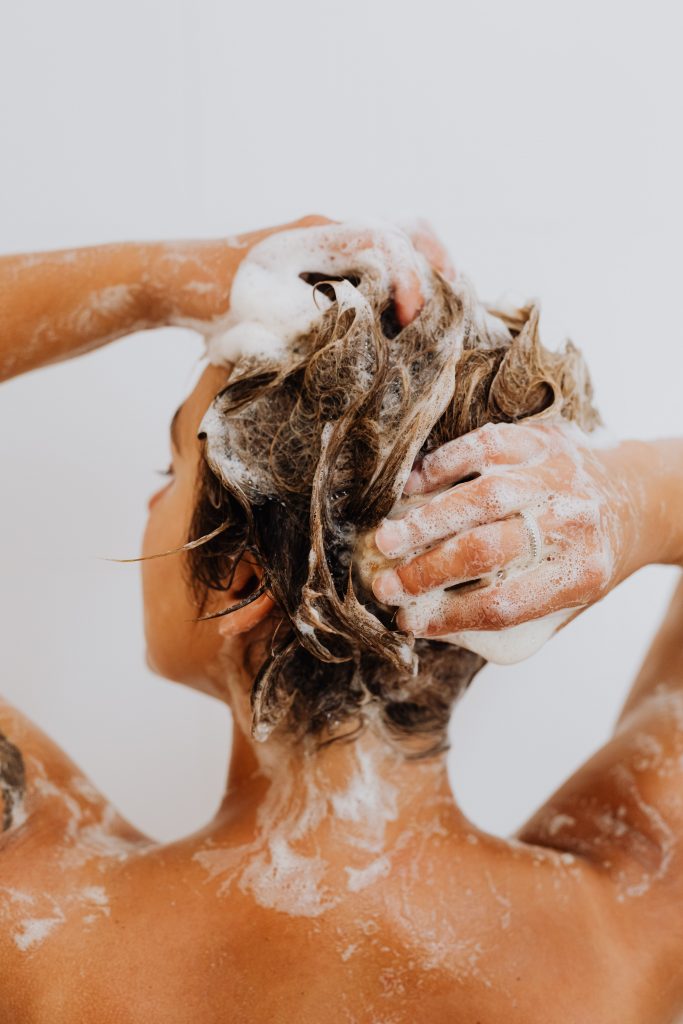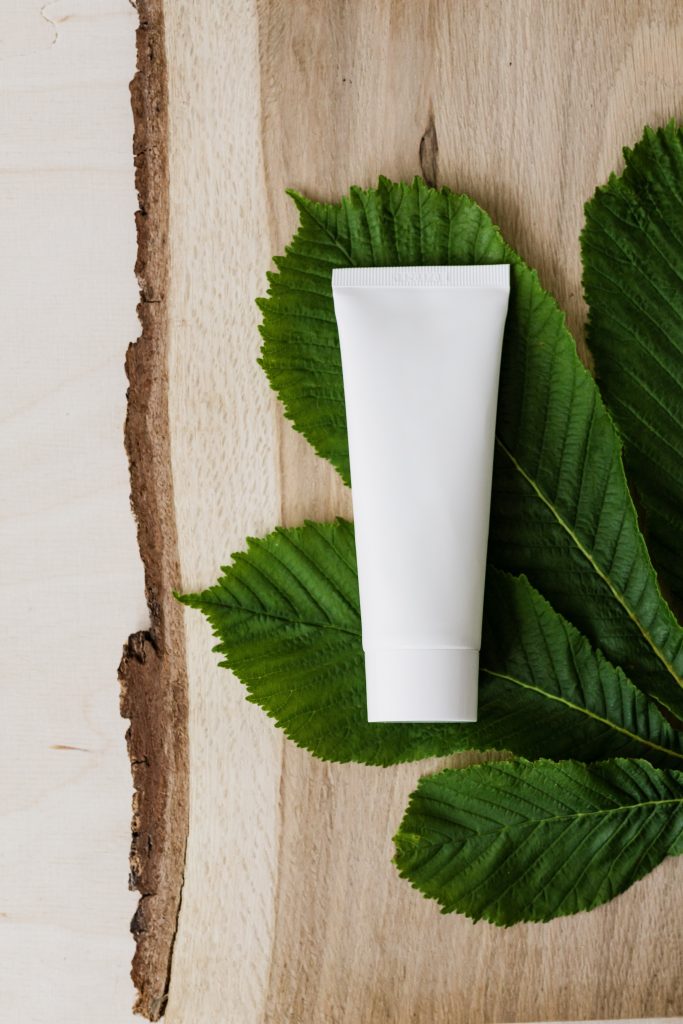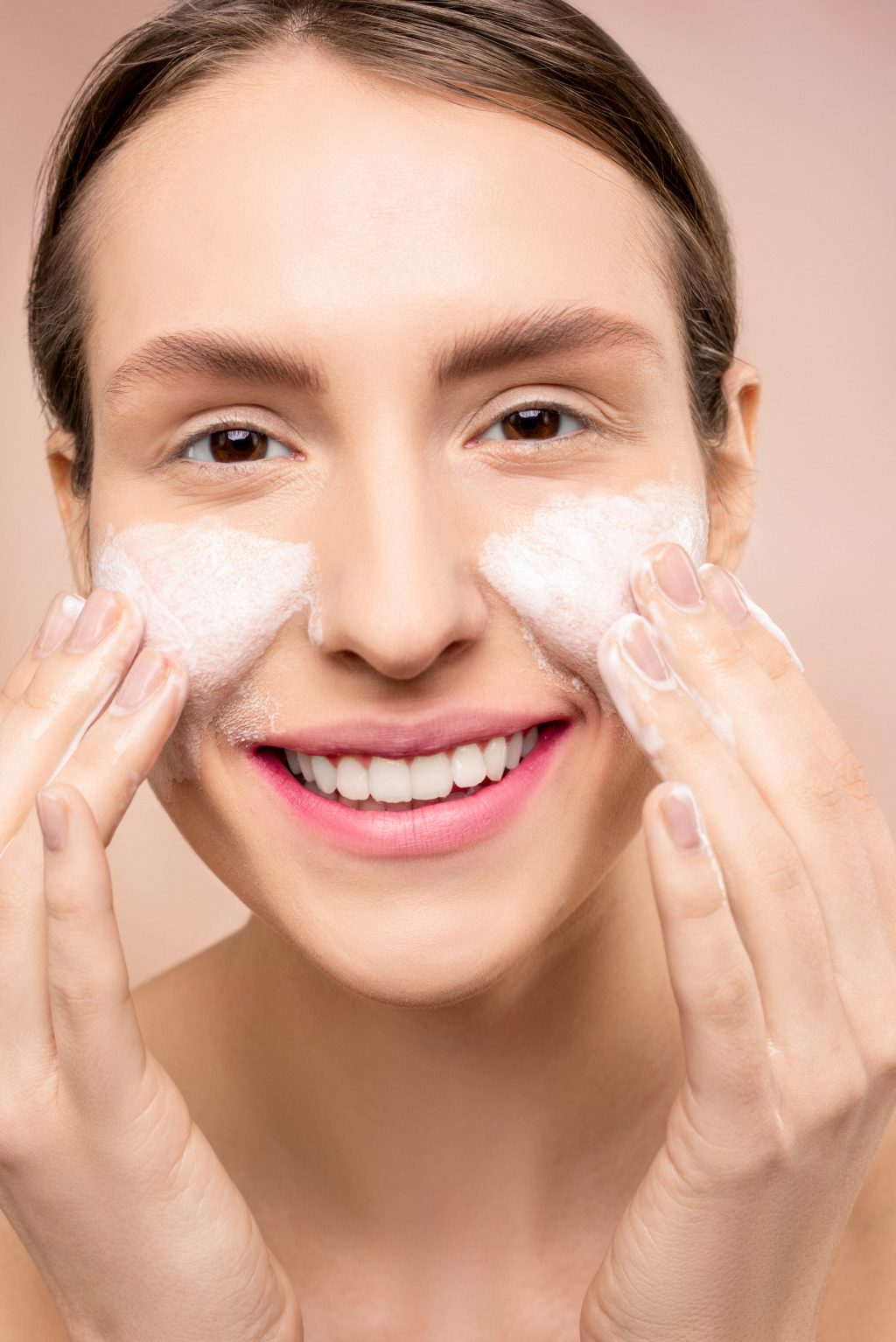Tea tree oil is an essential oil that can be used in several ways to keep your skin, hair, and even nails healthy. Tea tree oil is derived from the leaves of the tea tree (Melaleuca Alternifolia). This oil is known to kill bacteria and fungus with its antimicrobial properties. It may even reduce allergy symptoms like inflammation on your skin.
There are many different ways to use tea tree oil. You can use tea tree shampoo to treat itchy scalp causes or use tea tree soap for body acne. You can even use tea tree oil by itself, but it’s recommended that you use a diluted form because it’s known to be very potent. Below are some of the ways you can use tea tree oil:
Tea tree shampoo is ideal for dandruff prone hair. It’s best known for treating seborrheic dermatitis or Malassezia, which is caused by the Malassezia furfur fungus. You may have this condition if you have an oily scalp, dandruff that may have larger flakes than normal, inflammations, and itchiness on your scalp. If you have this condition, tea tree shampoo is guaranteed to give you relief by using its antimicrobial properties.
Even if you don’t have dandruff, you could be starving your hair follicles of much-needed nutrients with all the harsh chemicals used in hair products today. You can put your hair at risk of breaking off or falling out if you use a lot of chemicals or dye your hair regularly. And since tea tree shampoo is an oil-based shampoo, your hair will not feel more dry or brittle after you use it.
Using small quantities of diluted tea tree oil like that in tea tree shampoo on the hair shaft will help prevent chemicals and dead skin from accumulating. This keeps your hair safe and moisturized, which will help it to grow and prevent it from falling out. And if you don’t know what your itchy scalp causes, you can still give tea tree shampoo a try.

Tea tree soap also offers a number of benefits for your skin. It is reputed to treat acne and blemishes on your skin. Using tea tree oil soap, or a tea tree face wash, regularly will help you get rid of all kinds of blemishes. The essential oil’s antifungal, antibacterial, and anti-inflammatory properties help limit the growth of microbes on your skin, prevent them from returning, and alleviate inflammation. As a result, your blemishes will begin to disappear and your skin will become smoother, even-toned, and radiant.
Tea tree soap can also be a perfect solution to effectively minimize acne by using tea tree on your acne-prone skin. Tea tree soap won’t induce dryness, itchiness, or burning sensation. It’s effective for many things from curing acne and other associated problems to controlling further outbreaks. Even if you don’t want to use soap on your face, it can be used to treat body acne or ‘bacne’ if you have any.
And circling back to Malassezia again, this pesky fungus can even cause a type of acne called fungal acne. This is typically found on oily skin, as the fungus sustains itself using sebum and oils. You may have fungal acne if you’ve experienced small bump-like acne all over your skin, itchiness, and maybe even redness. Tea tree soap will be effective in getting rid of the annoying fungal acne much faster than any other soap due to its antimicrobial properties.
If tea tree soap isn’t suitable for your face, you can easily find a tea tree-based cleanser instead. There are many tea tree cleansers available on the market, including in the form of cleansing foam.
Diluted Tea Tree Oil
If you want to use pure tea tree oil instead of using tea tree shampoo or tea tree soap, you can easily purchase undiluted tea tree oil that comes in those iconic green bottles. However, tea tree oil is notoriously potent and may cause certain reactions in sensitive skin when used in its pure form.
To treat itchy scalp causes, you are safer to dilute it using carrier oil. Carrier oils are used to dilute essential oils and carry them to your skin. Some notable oils you can use with tea tree oil are coconut oil, jojoba oil, almond oil, olive oil, rosehip oil, etc. You can use any oil of your choice as long as you are using it to dilute the tea tree oil.
For your skin, you can dilute the tea tree oil with your moisturizer, with some aloe vera gel, or even water if you want to. Or you can use the tea tree oil to spot treat your acne. Just remember that whenever you use a new product on sensitive skin, it’s a good idea to patch test your product on a small portion of skin first. This way you’ll know if the product needs to be diluted or not.

Tea Tree Cream
There are even commercial tea tree cream, moisturizer, and gel available on the market. These products are already diluted and made safe for your skin, so you don’t have to go through the hassle of diluting it. These tea tree products are also the perfect companion for your tea tree shampoo and tea tree soap.
The gels are known to be skin clarifying. They are made with a blend of vital ingredients to help combat spots on your face and areas of blemish-prone skin. You can use these essential oil-based products to prevent moisture loss for softer, smoother skin. They also target pore-clogging bacteria to help you achieve the perfect, clear skin you want.
Tea tree oil can also prevent dry skin and reduce itchiness, inflammation, and irritation. This is ideal for someone suffering from eczema to get some relief from skin irritation.
There is a shortage of scientific evidence supporting the use of tea tree oil for psoriasis. Anecdotal evidence, however, indicates that tea tree oil can help treat psoriasis symptoms, such as infection and inflammation, thus providing relief.
Tea Tree Deodorant
After you’ve bought tea tree soap and also tea tree shampoo to relieve your itchy scalp causes, you might also be interested in tea tree deodorant. The antibacterial effects of tea tree oil can help regulate perspiration-related underarm odor. Sweat doesn’t smell on its own. Instead, a moderate to strong odor is created when secretions from your sweat glands mix with bacteria on your skin. A large concentration of these glands is located in your underarm region and is largely responsible for what is widely referred to as “body odor.”
The bacteria-fighting properties of tea tree oil make it an ideal natural alternative to commercial deodorants and antiperspirants. Using tea tree oil makes a healthy and powerful natural deodorant that can be made from a few other ingredients and tea tree oil. This is perfect if you want to avoid the chemical-based deodorant that is bad for you as well as the environment and go for a more natural approach instead.
Final Words
As you can see tea tree oil can be used in many different ways, from tea tree soap to tea tree shampoo for itchy scalp causes. It is a low-cost, natural alternative to chemical-based skin and hair care. You should definitely try out some tea tree products and see how it works for you.
